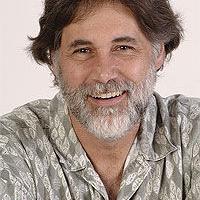Periodically, over the 30 years that I have been writing this column, I have been asked questions about the title “Arts and Humanities”. What is the difference between both ?
The arts are relatively easy to identify. Since the time of the ancient Greeks, seven disciplines have fallen into this category: three fine arts (painting, sculpture and architecture) and four performing arts (music, dance, poetry and theater).
The definition of the term “humanities” posed more problems. However, in general, the disciplines that make up the humanities are considered to be those branches of knowledge that focus on human culture and human expression: language and literature, the arts, history, and philosophy. In practice, what differentiates an artistic discipline from a human sciences discipline is a question of approach. Writing poetry is an art, but analyzing a poem is a human science. Inherently, the arts are largely intuitive and subjective, and the humanities—for the sake of this discussion, let’s take art history as an example—are primarily analytical and objective. At least this distinction has stood since 1965, when the National Endowment for the Arts and the National Endowment for the Humanities were established by the federal government.
All of this is a prelude to the main subject of this column, the annual celebration of the South Carolina Awards in the Humanities. Just this week in Columbia, five people were recognized by SC Humanities, our state’s program of the National Endowment for the Humanities: John Lane, Lacy Ford, Cindi Boiter (representing the Jasper Project), Doyle Stevick and Araceli Hernandez-Laroche . All five have done important work to “help South Carolina communities better understand our cultural heritage.”
I have known John Lane for many years, since he arrived on the USC Aiken campus in 1994 as a visiting poet. He still writes some very beautiful poetry, but over the years he has broadened his literary talents to include environmental literature and fiction.
A professor emeritus at Wofford College, Lane was the founding director of that school’s Goodall Environmental Studies Center. Among my favorite volumes that illuminate the interplay between human and natural history are “My Paddle to the Sea,” Lane’s personal account of an 11-day river journey from his own backyard in the Upstate, on 300 Miles to the Ocean, and “Coyote Settles the South,” which won the John Burrough Medal as “a nature book of unusual merit.”
He has recently added novels to his composition repertoire. His latest work, “Whose Woods These Are,” once again explores humanity’s relationship with the natural world, throwing in some good old-fashioned mystery for good measure.
The second recipient of a 2023 Governor’s Award in the Humanities is Lacy Ford, who served as dean of USC’s largest and oldest college, the College of Arts and Sciences. An academically trained historian, Ford won the Mary Lawton Hodges Prize for the best book written about the South in 2009, “Deliver Us from Evil: The Question of Slavery in the Old South” (Oxford University Press).
Joining Lane and Ford is Cindi Boiter, founder in 2011 of “Jasper,” a magazine devoted to the Carolina Midlands art scene. Because the periodical’s original mandate expanded to include the journal “Fall Lines” and a host of other initiatives, she created the Jasper Project, a nonprofit organization in 2015. An accomplished writer in her own right, Boiter received recognition from the Porter Fleming Foundation. in Augusta and the SC Fiction Project.
In addition to this year’s three recipients of the Governor’s Humanities Award, two individuals will receive the Akers Prize, named in honor of longtime SC Humanities Director Dr. Randy Akers, and given in recognition of work innovative in the field of public humanities.
Doyle Stevick changed direction in his academic career due to the violent extremism that has increasingly emerged in our country over the past two decades. A student of Greek and Latin literature, he was about to complete doctoral courses in both fields when he devoted himself to the proposition that education should be used to undermine prejudice and “foster prosocial dispositions “. All of this led him to dedicate his life to Holocaust education and in 2013 to found the Anne Frank Center at USC, an official partner of the Anne Frank House in the Netherlands. Among its many initiatives, the center has produced 15 traveling exhibitions to date that have reached more than 50,000 people in 21 states.
This year’s honorees are Araceli Hernandez-Laroche, professor of modern languages at USC Upstate and founding director of South Carolina Centro Latino, the state’s first academic center for the study of Hispanic and Latino cultures. Since moving to South Carolina in 2012, she has helped organize “numerous cultural events, globally themed conferences, and multi-generational humanities public programs,” all with the goal of celebrating the population’s growing more diverse in our state.
For more information on this year’s winners, visit shumanities.org.


